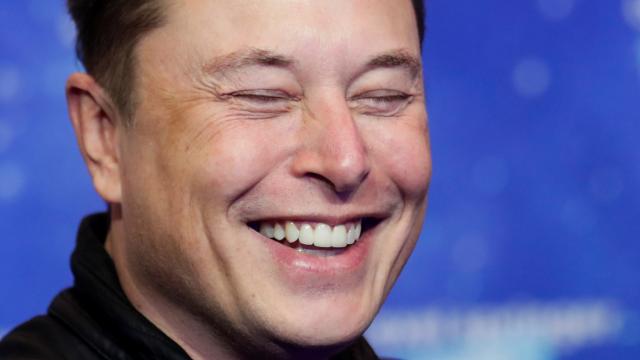Tesla has purchased $US1.5 ($2) billion in bitcoin, according to its latest SEC filing on Monday. The electric car company made the purchase sometime since January 2021, though the filing doesn’t say what price the company locked into.
From the SEC filing:
In January 2021, we updated our investment policy to provide us with more flexibility to further diversify and maximise returns on our cash that is not required to maintain adequate operating liquidity. As part of the policy, which was duly approved by the Audit Committee of our Board of Directors, we may invest a portion of such cash in certain alternative reserve assets including digital assets, gold bullion, gold exchange-traded funds and other assets as specified in the future. Thereafter, we invested an aggregate $US1.50 ($2) billion in bitcoin under this policy and may acquire and hold digital assets from time to time or long-term. Moreover, we expect to begin accepting bitcoin as a form of payment for our products in the near future, subject to applicable laws and initially on a limited basis, which we may or may not liquidate upon receipt.
Did you catch that last part? Elon Musk and Tesla clearly have big ideas for being able to accept bitcoin as a payment for a new car. But one of the main reasons that bitcoin hasn’t been adopted as a widespread currency is because the price fluctuates so wildly. Would you spend any cryptocurrency to buy, say, a loaf of bread, if you could buy two loaves of bread for the same cryptocurrency tomorrow?
Telsa’s disclosure acknowledges just how volatile cryptocurrencies like bitcoin can be, and that’s precisely why it needed to make a disclosure about it to financial regulators in the first place:
The prices of digital assets have been in the past and may continue to be highly volatile, including as a result of various associated risks and uncertainties. For example, the prevalence of such assets is a relatively recent trend, and their long-term adoption by investors, consumers and businesses is unpredictable. Moreover, their lack of a physical form, their reliance on technology for their creation, existence and transactional validation and their decentralization may subject their integrity to the threat of malicious attacks and technological obsolescence. Finally, the extent to which securities laws or other regulations apply or may apply in the future to such assets is unclear and may change in the future. If we hold digital assets and their values decrease relative to our purchase prices, our financial condition may be harmed.
Musk is a big believer in bitcoin, though he’s been pumping the joke cryptocurrency dogecoin over the past week for some reason. Will Musk go back to pumping bitcoin now that we know one of his companies depends on it? Almost certainly.
But you never can tell with Musk. Sometimes he’s just doing things for the joke. It might seem like $US1.5 ($2) billion is nothing to joke about, but in this case, it’s not Musk’s money. And as the world’s second wealthiest man, he could stand to lose a billion here and there even if it was his cash. Or coins, as it were.
